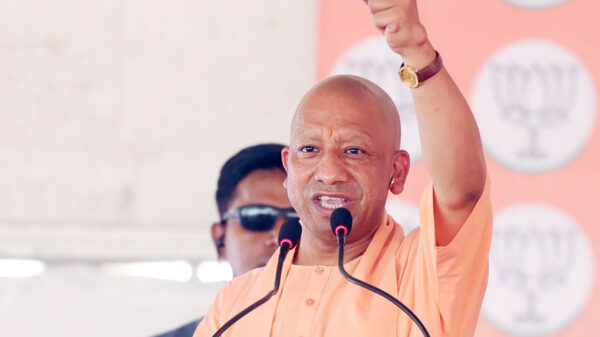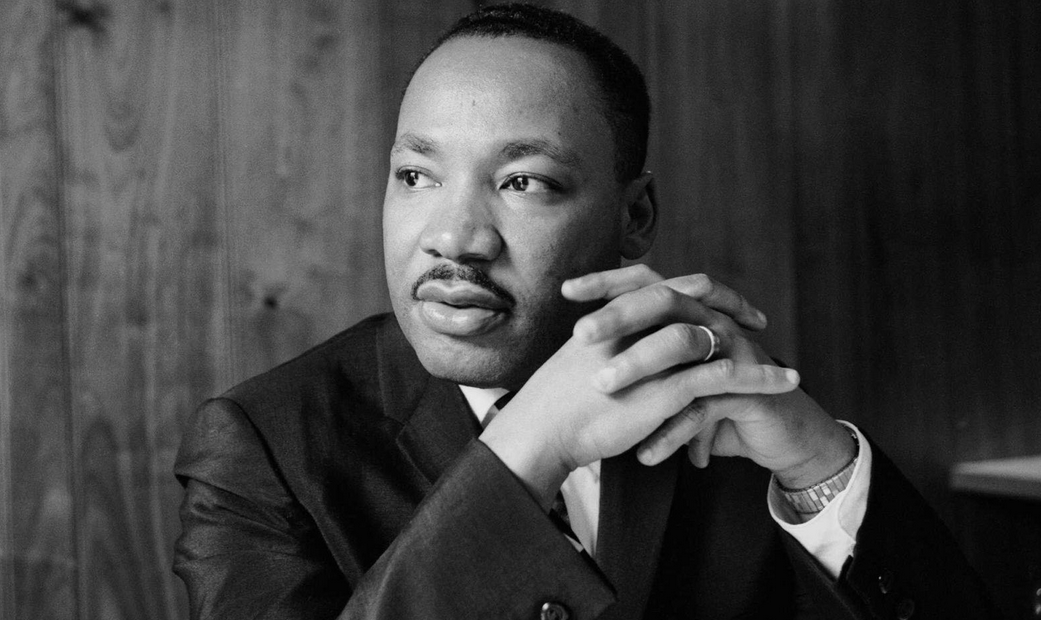“It’s that day of the year where people who don’t know anything about MLK, and would hate him if he were alive today, post the one or two MLK quotes they know.”
U.S. politicians, agencies, and departments provoked intense criticism on Monday—Martin Luther King Jr. Day in the United States—for sharing select quotes from the civil rights icon while ignoring his messages about important issues including militarism, poverty, and racism.
King—who was assassinated on April 4, 1968, in Memphis, Tennessee—would have celebrated his 95th birthday on Monday.
His daughter, Bernice King, wrote on social media Sunday: “Dear politicians/political influencers: When you evoke my father this #MLKDay, remember that he was resolute about eradicating racism, poverty, and militarism. And about corrective justice work. Don’t just quote him. Encourage and enact policies that reflect his teachings.”
With that call, MLK Jr.’s daughter shared a video clip of her father speaking out against the Vietnam War.
The Pentagon was among the departments that tried to honor King on social media, claiming that “his dream of equality resonates in our commitment to diversity, inclusion, and justice. Together, we strive for a nation that embraces unity and progress.”
The U.S. Department of Justice—whose agencies include the Federal Bureau of Investigation (FBI)—also joined in on the federal holiday, sharing a related speech U.S. Attorney General Merrick Garland delivered last week.
The FBI also continued to ignore annual calls to “sit this one out,” given its history of spying on King and trying to convince the civil rights leader to kill himself.
Democratic President Joe Biden, who is seeing reelection this year, faced criticism after saying: “Today, we reflect on the life and legacy of Rev. Dr. Martin Luther King Jr. and recommit to honoring his vision. It’s up to us to march forward choosing democracy over autocracy and a ‘Beloved Community’ over chaos—to take up Dr. King’s mantle and make his dream a reality.”
Al Jazeera journalist Rami Ayari was among the critics who responded to Biden by highlighting U.S. support for Israel, including its devastating war on Gaza, which has killed over 24,000 Palestinians and triggered mounting allegations of genocide.
“Consider the words of MLK Jr. on apartheid in South Africa while the U.S. funds and enables Israeli apartheid: ‘In South Africa today, all opposition to white supremacy is condemned as communism, and in its name, due process is destroyed. A medieval segregation is organized with 20th-century efficiency and drive. A sophisticated form of slavery is imposed by a minority upon a majority which is kept in grinding poverty. The dignity of human personality is defiled; and world opinion is arrogantly defied,'” said Ayari. “And world opinion is arrogantly defied… Sound familiar?”
Far-right U.S. House Speaker Mike Johnson (R-La.) also sparked backlash for selectively quoting King online.
Other congressional leaders under fire for their MLK-related posts include Reps. Lauren Boebert (R-Colo.) and Andy Biggs (R-Ariz.).
Meanwhile, progressive U.S. Rep. Summer Lee (D-Pa.) suggested Monday that considering the significant power of Congress and the executive branch, they should not merely pay “lip service to the ideals of King and eradication of the three evils he spoke of—poverty, militarism, and racism.”
“When politicians cite MLK quotes while pursuing policies that target Black [people] at home and abroad, it reads as performative,” said the Black congresswoman. “After the end of affirmative action, unaddressed police violence, families struggling to make ends meet, and escalating war, we have work to do.”
“We are in the midst of humanitarian crises in Sudan and the [Democratic Republic of Congo]. Ones that our weapons are directly responsible for in Palestine and Yemen. Claiming MLK’s legacy while contributing to the suffering of people of color abroad is shameful,” Lee continued. “It’s long past time for an honest accounting of Dr. King’s legacy, and a recommitment to fight for the freedom from poverty, from white supremacy, and from excessive militarism—whether it’s the police in our communities or the conflicts we engage in abroad.”
State leaders also elicited passionate responses to their online messaging about King.
Tennessee Rep. Justin Jones (D-52) is one of two young Black men whom GOP state House members expelled last year—though voters sent him and Rep. Justin Pearson (D-86) back to the chamber in special elections.
After the Tennessee House Republican Caucus shared a post about the civil rights leader, Jones called out the hypocrisy but also urged his GOP colleagues to “spend more time studying the work of Dr. King.”
In response to Republican Oklahoma Gov. Kevin Stitt’s MLK post, Aaron Baker, who teaches social studies at a public school, said that “it is my job as a teacher to develop the critical skills in students sufficient to [recognize] that this is a gross reimagining of history and a pernicious abuse of political power.”
Journalist Nikole Hannah-Jones noted that Stitt has issued an executive order banning diversity, equity, and inclusion (DEI) programs at agencies and public universities as well as signed a bill restricting educational instruction on race, which led to his being ousted by the 1921 Tulsa Race Massacre Centennial Commission.
GOP Texas Gov. Greg Abbott was also slammed for his post about King, with critics pointing to conditions and policies under the far-right governor’s reign, from book bans to immigration-related comments and actions.
“A reminder that Abbott’s rhetoric was cited in the El Paso massacre shooter’s manifesto found after he brutally murdered over 20 people in an act of white nationalist violence,” said Ari Sawyer, a U.S. border researcher at Human Rights Watch. “Despite apologizing at the time, Abbott has since, in word and deed, perpetuated that racist violence.”
This article was originally published in Common Dreams.

































































